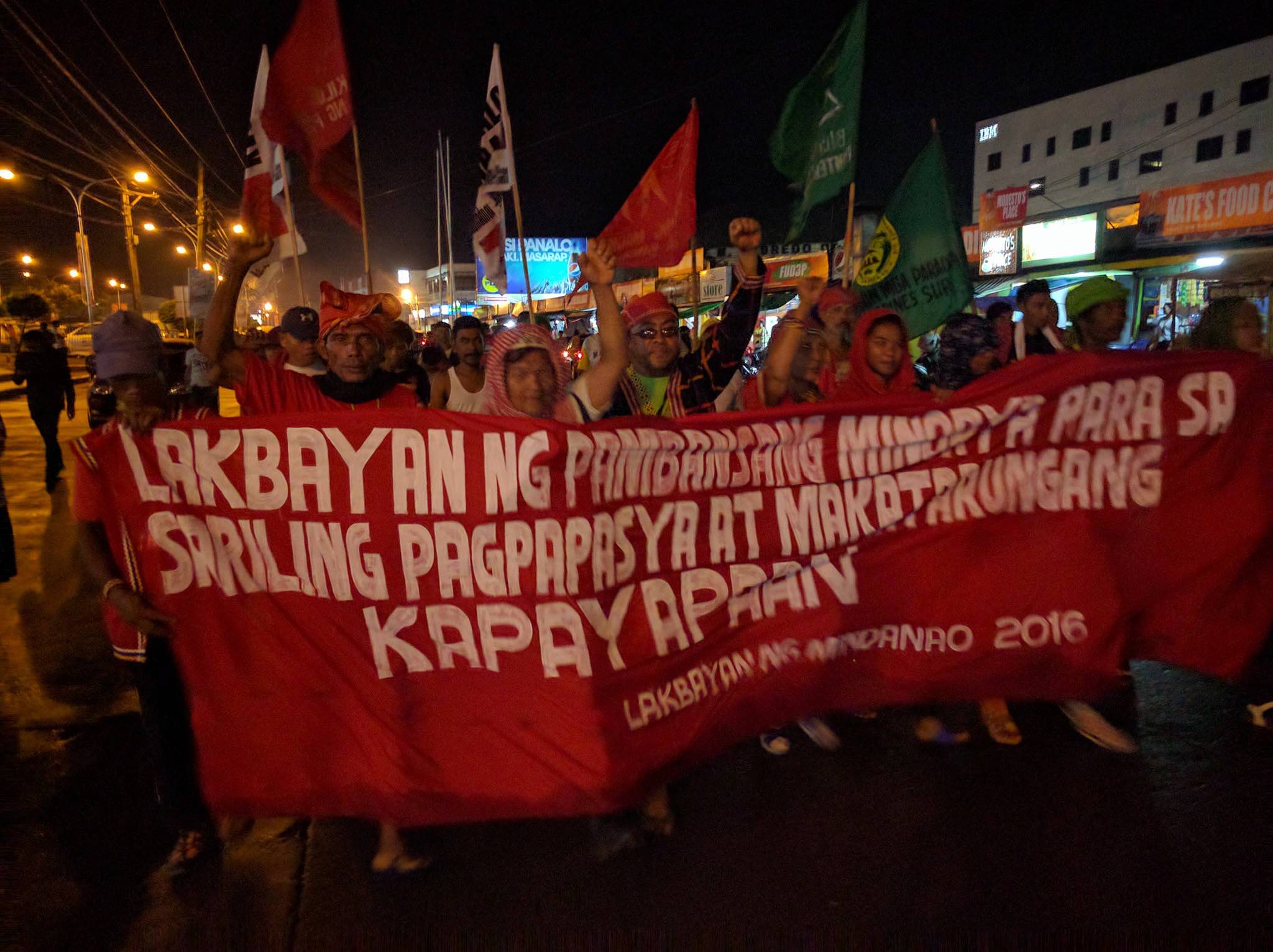 "They do their fighting in our home, but they do not include us when they talk peace.”
"They do their fighting in our home, but they do not include us when they talk peace.”
For me, that was the message that stood out during the recently organized media roundtable discussion on the indigenous peoples and the peace process organized by MindaNews in Davao City.
And I think that statement captured the current marginalization of the indigenous peoples in the peace process between the Government of the Republic of the Philippines (GRP) and the (NDF).
Indeed, the Armed Forces of the Philippines (AFP) and the New People’s Army (NPA) wage battle in ancestral lands of our indigenous peoples. They get hurt and killed in the crossfire. Some of them are forced to take sides and take up arms to defend themselves not because they necessarily believe in the political ideology espoused by the Communist Party of the Philippines (CPP). It's not even because they think they are part of the Philippine government. They assert that they have governed themselves even before the colonizers came and systematically marginalized them.
They are forced to take up arms to survive because they are under attack. What is threatened is not only their physical existence but also their worldview and entire way of life.
“We actually do not need help from outside our own communities and tribes, we have survived and even thrived for centuries even before Christ. We just want them to do us no harm and let us be,” shared Jimid Mansayagan, chair of the Governing Council of Lumad Mindanaw People’s Federation.
For peoples who have been here long before the government and the CPP were founded, they are being very gracious and generous.
According to Lumad Mindanaw, it is estimated that 3 out of 4 NPA combatants are Lumad. On the AFP side, most armed units deployed in Lumad peoples’ areas in Mindanao rely on Lumad CAFGUs in the conduct of combat operations.
“The recruitment of Lumad combat fighters by both AFP and NPA units, as well as mobilization of allied paramilitary/Bagani units, is altering the practice of traditional tribal defense system and destroying the fabric of Lumad communities who are often divided and polarized into competing factions,” wrote Gukom Jose Catiag Macarial, presiding officer of the Governing Council of Lumad Mindanaw.
Macarial explained that their indigenous and customary ways of peacemaking and enforcing justice that are embedded in their community have sustained them in “maintaining peace and harmony for generations.”
With the war being waged between the government and the communist rebels, their indigenous processes and mechanisms “are continuously sidelined, coopted, and often destroyed by those who would seek to impose their terms of peace and justice” on the indigenous communities.
Lumad Mindanaw maintained that the indigenous peoples’ peace processes – embodied in “husay,” “tiyawan,” “antang,” “bityala,” “tampuda ho balagen,” and others – provide mechanisms to: (1) call for an end to warfare; (2) investigate the circumstances of violence; (3) create space for truth-telling; (4) develop customized interventions toward reconciliation; and (5) sanction those responsible for harm and violence.
Unfortunately, with the ongoing violence, polarization, and displacement in indigenous communities, these peace and justice mechanisms cannot be fully utilized.
With the current indefinite unilateral ceasefire from both parties, the indigenous peoples offer a brief respite from violence. However, they insist that more should be done.

Meaningful participation
The indigenous peoples want to meaningfully participate in the peace process. They don't want to be treated as mere beneficiaries of the peace talks. After all, it is their sacred ancestral home where the war is being waged. They must have a say in the negotiations of a peace agreement between the parties waging the war.
In Mindanao, where a significant portion of the national patrimony remains intact and not yet sold to the highest bidder, the indigenous communities want to be included in the decision-making process regarding the proposed socio-economic reforms.
The indigenous peoples are deeply rooted in and connected to nature. They see themselves as stewards of our natural resources for the future generations. As stewards of the earth, they do not look at land as something to be exploited and destroyed for profit, but as a sustaining gift that will nurture their children and grandchildren.
On the issue of political and constitutional reforms, the indigenous peoples have plenty of sage advice for both the government and the NDF because they have been governing themselves peacefully, justly, and harmoniously for centuries.
With the paradigm shift in the peace process under President Rodrigo Duterte towards inclusivity and transparency, now is the time to showcase indigenous peoples’ leadership and meaningful participation in peace negotiations. They have a lot to teach our peace panels.
I think it is time to form an indigenous peoples peace table. And let both the government and the NDF panels sit there and learn. – Rappler.com
Patmei Bello Ruivivar is the Communications Director of the Office of the Presidential Adviser on the Peace Process. She has served under 3 Philippine Presidents in various capacities including her stint as chief-of-staff of the Executive Office of the President of the Philippines. She's the first woman as well as the youngest and longest-serving chief-of-staff of the former Mayor of Davao City, now the 16th President of the Philippines, Rodrigo R. Duterte.
The government declared the month of October as "National Indigenous Peoples' Month."
(Editor's note: A version of this article first appeared in Mindanao Times. We are republishing it with the author's permission.)